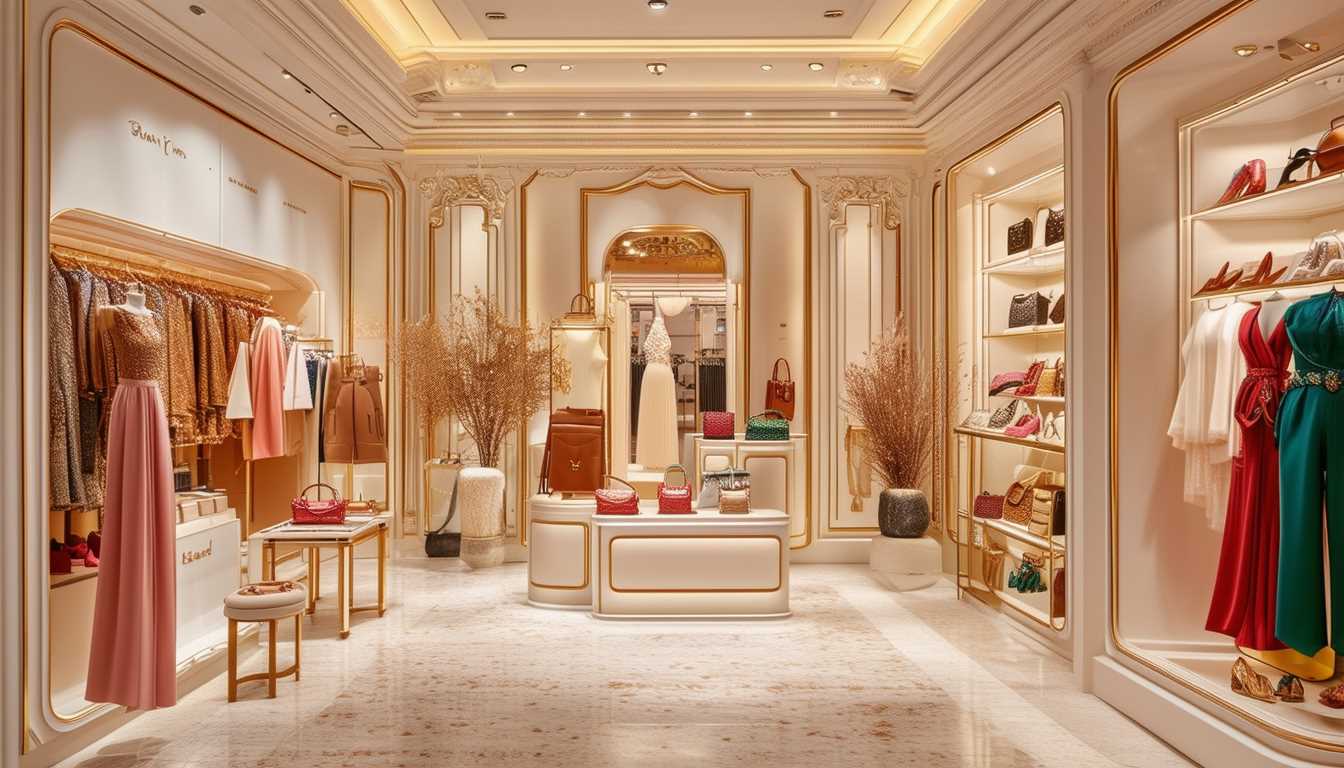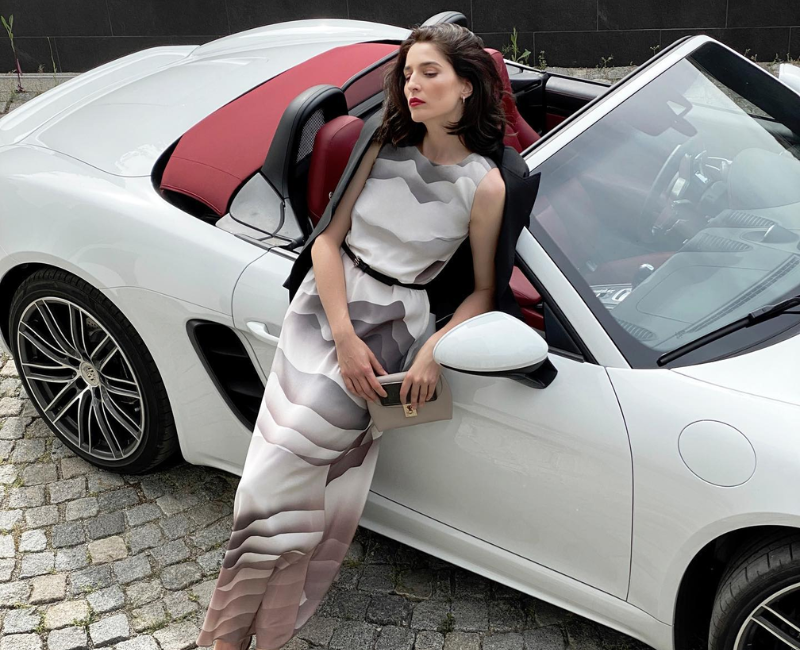Excitement About The Designer Warehouse South Africa
Excitement About The Designer Warehouse South Africa
Blog Article
Excitement About The Designer Warehouse South Africa
Table of ContentsThe smart Trick of The Designer Warehouse South Africa That Nobody is Talking AboutNot known Incorrect Statements About The Designer Warehouse South Africa Examine This Report on The Designer Warehouse South Africa5 Simple Techniques For The Designer Warehouse South AfricaRumored Buzz on The Designer Warehouse South AfricaSome Known Questions About The Designer Warehouse South Africa.The 15-Second Trick For The Designer Warehouse South AfricaThe Designer Warehouse South Africa Things To Know Before You Buy
With the surge of shopping and the altering preferences of customers, it is necessary to explore the different perspectives on what the future holds for for luxury goods. 1. The increase of ecommerce The rise of ecommerce has been a game-changer for the retail market, including duty-free buying. Lots of are now supplying their products online, which enables clients to shop from the comfort of their own homes.Duty-free stores have also adapted to this trend by providing their products online, making it much easier for clients to purchase prior to they even leave their home country. Numerous consumers are now looking for special and customized experiences when shopping for high-end products.
Duty-free shops have also adjusted to this trend by providing to their consumers. As an example, some duty-free stores provide to their consumers, where an individual buyer will certainly aid them find. 3. The significance of price Price is still a significant element when it comes to purchasing high-end items, and duty-free shopping is still one of one of the most cost effective means to purchase.
Indicators on The Designer Warehouse South Africa You Should Know
It is important to note that not all duty-free stores use the same prices. The future of The future of duty-free shopping for deluxe products is most likely to be a mix of physical and on the internet shopping experiences.
Duty-free shops will certainly need to remain to adapt to the transforming preferences of consumers by offering and. The Designer Warehouse South Africa. The future of duty-free searching for luxury goods is likely to be a combination of physical and on the internet shopping experiences. Duty-free shops will require to proceed to adapt to the transforming choices of consumers by offering and affordable costs

The Designer Warehouse South Africa Fundamentals Explained
In the 1980s and 1990s, high-end brand names started to expand their client base by using more affordable items. These brands provided products that were still taken into consideration glamorous, but at a much more sensible cost.
Plus, devices, unlike specialty knitwear or cashmere coats, can be utilized daily, justifying the acquisition. Deluxe brand names frequently outsource the production of devices, such as eyeglasses and phone cases, to third-party makers like Luxottica and Casetify. These skilled 3rd parties can generate these accessories at a lower price than in-house manufacturing.
This service design makes devices very profitable for luxury brands. Luxury brand names make a significant earnings from accessories.
Some Known Factual Statements About The Designer Warehouse South Africa
In addition, luxury brand names face a better difficulty as younger generations end up being extra mindful regarding the atmosphere, society, and economic situation., high-end brand names are welcoming sustainability, as these generations are expected to make up 70% of the deluxe market by 2025.
In current years, there has been a rise in high-end brands adopting lasting practices. This consists of using environment-friendly materials, revamping product packaging, donating or selling leftover fabrics to prevent waste, and devoting to reducing their carbon footprint.
Focusing on transparency is needed to avoid adverse attention. Brands deemed socially responsible and transparent regarding their methods are more likely to be relied on and have a favorable brand name track record. Nonetheless, the international apparel industry is still reluctant to disclose specific info concerning its supply chains. Some luxury brand names, such as Louis Vuitton and Cartier, are leading the means by partnering with Mood Blockchain Consortium, the globe's first worldwide deluxe blockchain.
The 9-Minute Rule for The Designer Warehouse South Africa
In the post-pandemic period, brick-and-mortar stores have actually used 'hyperphysical' retail to bring in shoppers back to physical shops. After an extended period of splitting up and a boosted reliance on e-commerce, customers are currently searching for new and interesting retail experiences. While several of these experiential principles began as pop-ups, they have obtained popularity and are now coming to be long-term fixtures in the retail industry.
According to a report by The Business of Fashion, 31% of high-end consumers visit physical shops at the very least once a month, preferring the benefits of face-to-face interactions. In addition, 68% of luxury consumers think that entailing a physical shop is critical for customer care. Different research study commissioned by the worldwide innovation company Epson exposes that 75% of European customers would certainly alter their shopping actions if high road shops used more experiential options.

By accepting these concepts, deluxe merchants can navigate the complexities of the contemporary customer landscape and chart a course towards continual relevance and success. They can be tailored in the direction of supporting consumer relationships, enhancing their basket volume, or ensuring they make a second or 3rd purchase, ultimately transforming them right into the new top spenders or also brand name ambassadors. Special luxury style commitment programs, in certain, stand out in interesting privilege-driven target markets, as seen with brands like copyright and LuisaViaRoma which we will certainly cover much more in this article.
This sentiment must be the basis for luxury fashion commitment programs. There's one word that explains high-end style loyalty programs completely: exclusivity.
Today the customer is far more tech-savvy and hangs around to shop around to obtain the right bargain. That means they have come to be much less brand name faithful. Post-COVID, the competitors for full-price customers will certainly be much more noticable. With a glut of supply brands will certainly be lured to discount to incentivize yet don't intend to harm their brands' setting.
That actions could be spending routines (the more cash your customers spend in the shop, the greater the tier they will certainly reach), or a mix of points, e.g - The Designer Warehouse South Africa. completing a challenge, donating to charity, or seeing your internet site on a daily basis for a specific duration of time. Every one of these tasks would, in turn, unlock tier-specific incentives
3 Easy Facts About The Designer Warehouse South Africa Explained
One more form of surprise & pleasure is to invite brand name supporters and leading spenders to the special birthday or store opening occasions. Luxury fashion giant Herms is.

Both the cost-free and paid strategy has its very own pros and cons, choose the one that fits your brand vision the most. LuisaViaRoma is a high-end merchant based in Florence, Italy.
3 Easy Facts About The Designer Warehouse South Africa Explained
strategies exclusivity in different ways. As opposed to gating off the benefits, the company prolongs benefits to every person, knowing that just persisting customers would have an interest in monogramming and private styling consultations. Moda Operandi is a 'fashion discovery system' that allows online shoppers to browse and go shopping straight from designers' path upcoming and existing collections.
Getting previously owned products plays an important role in reducing waste and the impact of style on the setting. There is no longer an adverse undertone affixed to shopping pre-owned.
Report this page